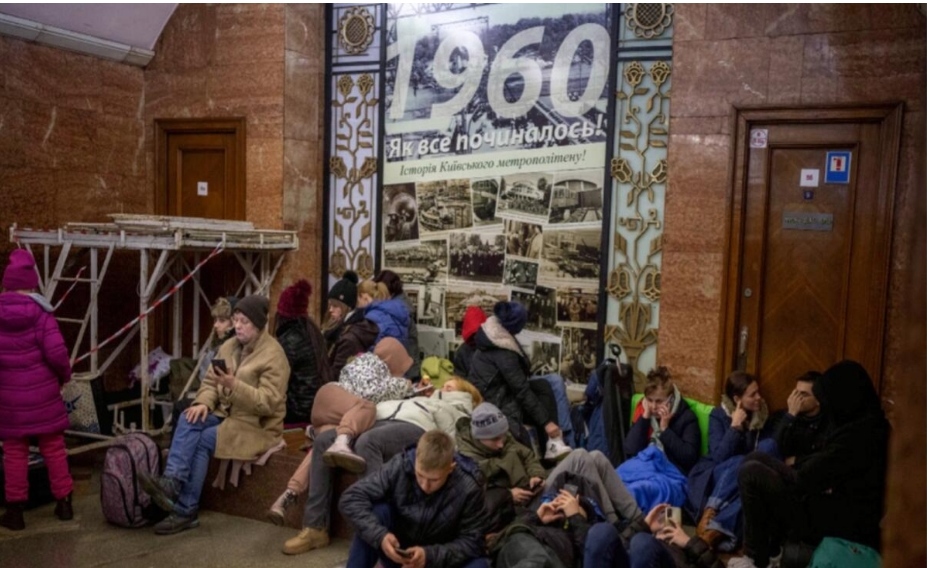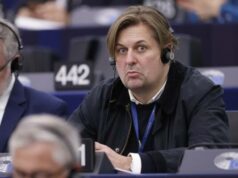Russia borrows from US playbook during Cuban missile crisis
A resurgent Russia is now pushing back at American primacy established at the conclusion of the Cold War
By Chidanand Rajghatta
Nations big and small across the world are closely watching the drama unfolding in Ukraine to assess what is in store for them in a fluid, ever-changing world. At the heart of the face-off between the US and Russia is clashing visions of nationality and sovereignty, and the use of foreign policy and military tools for strategic dominance.

Russia, Ukraine Signal Openness To Talks As Kyiv Braces For Assault
A resurgent Russia is now pushing back at American primacy established at the conclusion of the Cold War that the US won decisively. Moscow is gambling that a domestically fractious America won’t be able to get its polity and its European allies together.
For Washington, not calling Russia’s bluff would be tantamount to conceding America’s weakening status as a global power. Such an admission will embolden Russia — and China — to further expand their territorial claims based on historical grievances — real or perceived. Taiwan, for instance, will be quaking in its boots.
Let’s unpack this a little more. The American case for expanding Nato right to Russia’s doorstep is that nations ought to be free to choose their partners and alliances. This is great in principle. Bnations also like to influence, if not exercise dominance, over smaller or weaker neighbours. To paraphrase Vladimir Putin, free choice for one nation ends where the security concern of another begins. In his view, the US and Nato have overreached. Have they?
To appreciate the view, consider if the US will accept Russia forging a military alliance with Mexico and Canada, much less allow Moscow to station ballistic nuclear missiles there. When the USSR went that route with Cuba during the Cold War, it led the world to the brink of a nuclear war. Havana continues to pay the price for its impertinence to this day.
It is instructive to study some of the language accompanying the Cuban missile crisis because Russia is adopting from the American playbook then. President Kennedy used the term naval “quarantine” for the US blockade to prevent Soviet missile supply to Cuba because a blockade would have been an act of war by legal definition. Which is why Putin has sent “peacekeepers” to Ukrainian territories after having them “legally cede” to Russia, and why some Americans tried to suggest it is not an invasion. From such semantics is peace salvaged from the prospect of war.
Russia’s case for laying claim to Ukraine and its territory is also dodgy and will open up a global can of worms if allowed to pass uncontested. Ethnic and linguistic commonalities extend across national borders in many parts of the world. Redrawing borders by military means on the basis of revisionist thinking arising from one’s own economic windfall or a rival’s weakness is a slippery slope. It could allow strong countries everywhere in the world to take a shot at this, shaking up the global order.
Then there is the nuclear dimension to the conflict. When the Soviet Union fell apart towards the end of the Cold War, Ukraine by default found itself with the world’s third largest nuclear arsenal – a legacy of USSR’s weapons placed there. Given the horrific experience from the Chernobyl nuclear disaster, which occurred on its soil, Kyiv was only too happy to forgo nuclear weapons under the Budapest Memorandum that gave Ukraine security assurances in exchange for adhering to the Nuclear Non-Proliferation Treaty. These assurances include commitments to respect Ukrainian “independence and sovereignty in the existing borders” and pledges to refrain from threats or use of force. Signatories to the memorandum? The US, the UK, and Russia.
Ukraine naturally feels peeved that Russia has not only violated the guarantees, but the US and the UK also will throw it under the bus. Talk of sanctioning Russia aside, the Bucharest memorandum is nowhere near as iron clad as the Nato charter whose Article 5 enjoins a common defence when any one member is attacked.
For many nations across the world, the choice is becoming rather stark — be part of an alliance with a nuclear patron, or go solo nuclear, as some countries have done overtly or covertly. All bets will be off in a world awash with nuclear weapons if the current system, however rickety, breaks down.
America is handicapped in how it will manage, if not confront, Russia’s revanchism because there is no clarity or coherence at home. A section of Republicans is awash with nostalgia for the Trump presidency, believing Putin wouldn’t have pulled off such a heist during his time. He wouldn’t have to.
Trump would have thrown Ukraine under the bus and made a congratulatory call to Putin. At the other end of spectrum are establishment militarists just yearning for another war in an America that always seems to need an enemy.
Somewhere in between is a world where it should be possible to convince one side not to overreach and to persuade another side not to redraw boundaries by force.
Source: Khaleej Times



